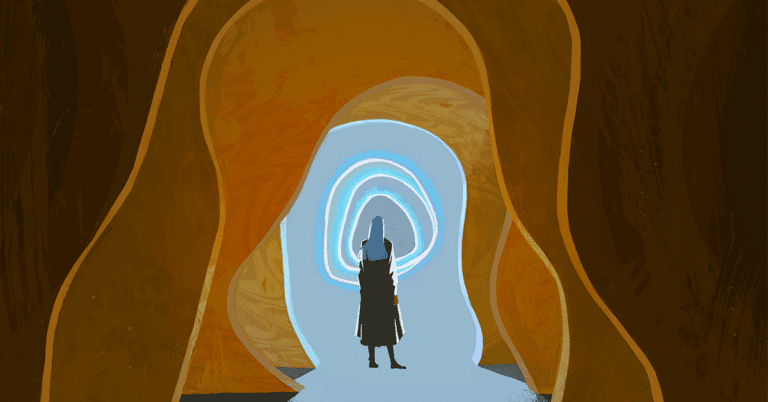
Image by Chris Zielecki/Flickr, © All Rights Reserved.
How to Reach Out to Someone Who Is Struggling
There is a story told and retold in the Middle East about how to help someone who’s drowning.
The story goes that a man had fallen into a river. He was not much of a swimmer and was in real danger of drowning. A crowd of concerned people wanted to rescue him. They were standing at the edge of the water, each of them urgently shouting out to him:
“Give me your hand, give me your hand!”
The man was battling the waves and ignored their urgent plea. He kept going under and was clearly struggling to take another breath.
A saintly man walked up to the scene. He too cared about the drowning man. But his approach was different. Calmly he walked up to the water, waded in up to his knees, glanced lovingly at the drowning man, and said:
“Take my hand.”
Much to everyone’s surprise, the drowning man reached out and grabbed the saint’s hand. The two came out of the dangerous water. The drowning man sat up at the edge of the water, breathing heavily, looking relieved, exhausted, and grateful.
The crowd turned towards the saint and asked in complete puzzlement: “How were you able to reach him when he didn’t heed our plea?” The saint calmly said:
“You all asked him for something, his hand. I offered him something, my hand. A drowning man is in no position to give you anything.”
Let us remember not to ask anything of someone who is drowning.
I saw a friend of mine over the weekend. It was the first time I had seen him since turbulent events in my own life, and he lovingly asked about that. I know him to be a loving father, a caring husband, one whose face glows when he speaks about his children. So I inquired about his family. He shared with me the difficult news that his own daughter had gone through some of the same challenges I had. We spent the rest of the time discussing how we can best be there for the people we love.
He shared, with a pained voice, how hard it was to see someone he loves so much hurting. It almost sounded like it would be less painful for him if he could be the one carrying the burden. We talked about the energy our loved ones spend to shield us, to protect us from their pain at the times when they are most in need of having someone take them by the hand and lead them to the shore.
We talked about this issue of how to be there for, and with, someone who was hurting, drowning. In other words, how to lend a hand, rather than asking them to give us their hand.
One thing we talked about stayed with me: When a person is breaking, broken, they are so exhausted, so drained. Asking them to come to us and share their brokenness is asking them to do more when all they can do to stay alive is to tread water.
And then there is shame. So many of us have felt a great shame when our lives, our marriages, our careers fall apart. To come to the people who can help us with our shame is… well, shameful. Ironically we end up spending more energy trying to shelter our family and loved ones from our brokenness. This is energy that we don’t have, energy that we should be using to tread water.
So if you are that saintly soul, if you want to reach out to someone who is struggling to stay above water, go to them.
But don’t ask them to give you their hand. Instead, offer them your hand. Don’t ask for their heart, offer them your heart. Offer them your ear, your love, your shoulder. Release your friends, your family, from the shame of their brokenness. Let them know that you love them through the brokenness, because of the brokenness, and God-willing, after the brokenness.
Free your loved ones of the energy they spend to hide their brokenness from you. Free them of the shame of coming to you as they are.
Let them spend that energy on surviving, on healing, on thriving. Let us love one another as we are, so that we may become all we are meant to be.

